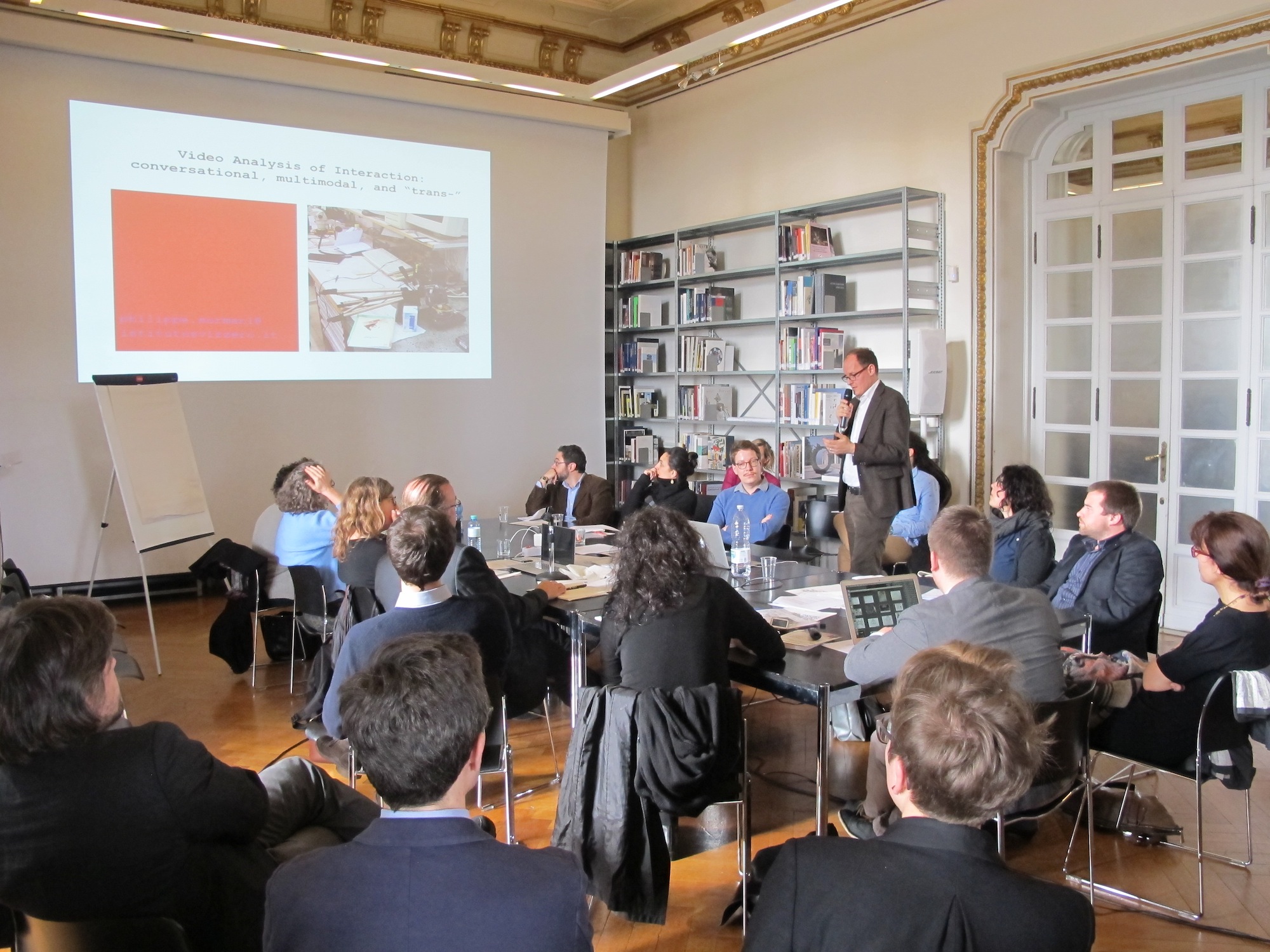Images, inquiry and innovation: current practices and problem of visual analysis
Ways of Seeing
Introduction
Program
Video
Biography
Ways of Seeing
How are current approaches in the humanities and social sciences working with images? What research problems do they address? And in doing so, what do they learn on the images analyzed as well as on visual analysis? In short, how do they innovate? This opening workshop invites its participants – archeologists, historians, philosophers, and sociologists, among others – to an interdisciplinary dialogue that addresses both the contexts of image use and the circumstances of visual analysis. This double “return to practice” will also contribute to a re-contextualization of the current debate on the digital orientation (or reorientation) of humanities and social sciences (towards “digital humanities”).
PROGRAM
Thursday 25 February
10.00 Welcome and opening remarks
Philippe Sormani (Sociology, Istituto Svizzero di Roma)
and Guelfo Carbone (Philosophy, Istituto Svizzero di Roma)
10.45 Imaginaries of a solitary walker: doing archeology of Calabrian landscapes
Marc Duret (Archeology, University of Geneva – ISR fellow)
11.45 Possibilities and limits of visualization within archeology and architecture
Henrik Boman (Archeology, Swedish Institute in Rome)
and Marie Kraft (Urban Studies, Swedish Institute in Rome)
12.30 Finding the possible in an impossible relation: analysing the medieval Gesamtkunstwerk through images
Vladimir Ivanovici (History of Art, USI, Mendrisio)
15.00 Producing the archive
Federica Martini (History of Art, ECAV, Sierre – ISR fellow)
15.45 Video analysis of interaction: conversational, multimodal,and “esoteric”
Philippe Sormani (Sociology, Istituto Svizzero di Roma)
16.45 Video-based research in Workplace Studies
Barbara Pentimalli (Sociology, University of La Sapienza, Rome)
18.00 Evening lecture:
Images and imaging in inquiry and innovation: a view from science and technology studies
Martina Merz (Alpen-Adria University Klagenfurt, Vienna)
Friday 26 February
10.00 Making space without building it / building up virtual spaces – Robert Zemeckis’ and Harun Farocki’s CGI
Malvina Giordana (Film and Media studies, University of Roma Tre)
10.45 For a grammar of visual esperanto
Angela Maiello (Philosophy, University of La Sapienza, Rome)
11.45 The work of art in the age of differential reproduction
Dario Cecchi (Philosophy, University of La Sapienza, Rome)
12.30 Discussion: Lessons learned, gaps noticed
All participants
Chair: Guelfo Carbone and Philippe Sormani (Istituto Svizzero di Roma)

Video of the conference
Martina Merz, professor of Science Studies at Alpen-Adria-Universität Klagenfurt | Wien Graz, Austria and visiting scholar at the Academy of Finland Centre of Excellence in the Philosophy of the Social Sciences (TINT), University of Helsinki, Finland (both since 2014).
After completing a first degree and a doctorate in physics at the Ludwig-Maximilians-Universität Munich, her aim to investigate contemporary sciences as social and cultural phenomena brought her to sociology and the field of Science and Technology Studies (STS) and, thus, to the University of Bielefeld. Her scientific activity led Martina Merz to Geneva (for an ethnographic study at CERN) and from there via Bern to Lausanne. From 2006 to 2013 she held a professorship of the Swiss National Science Foundation at the Department of Sociology at the University of Lucerne, heading a research project on the constitution of nanoscience as a novel research field in Switzerland. She spent the academic year 2013/2014 at the Academy of Finland Centre of Excellence in the Philosophy of the Social Sciences (TINT) at the University of Helsinki before moving to Austria in 2014.
Her recent research focuses on the local configuration of new research fields, the representational practices in science (models, simulation, images), and the methodology of qualitative social science. She explores interdisciplinary science not only as a study object but also in action, cooperating time and again with social scientists, philosophers, historians, and, occasionally, physicists.
Immagini, inchiesta, e innovazione - 25 febbraio 2016, Istituto Svizzero di Roma © OKNO Studio